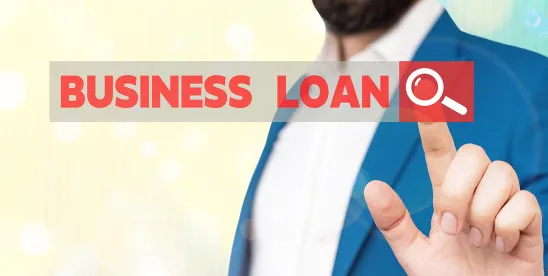On 22 January 2021, the U.S. Small Business Administration (SBA) posted preliminary guidance relating to Shuttered Venue Operator grants (SVO grants). The SVO grant program was enacted by sections 278(d) and 324 of the Economic Aid to Hard-Hit Small Businesses, Nonprofits, and Venues Act (the EAA).
Although the SBA has not yet released regulations and the web page provides only high-level information, the page does offer some insight on the SBA’s initial approach to the SVO program. This alert highlights some of the key terms of the grant program as defined in the EAA and areas where the SBA’s web page suggests potential divergence from the EAA. Information contained in this alert is based on the plain language of the EAA and is subject to change depending on the content of the Interim Final Regulations (IFRs) eventually issued by the SBA.
SHUTTERED VENUE OPERATOR GRANTS
The SVO grant program allocates US$15 billion in grant funding to be administered by the Office of Disaster Assistance for operators of live venues such as concert halls, certain museums, and other related businesses such as movie theaters. For eligible entities, the grants offered by the SVO program may provide a more attractive lifeline than the forgivable loans offered through the Paycheck Protection Program (PPP loans). One point of potential divergence from the statute pertains to SVO grant eligibility. Although the plain language of the EAA states that eligible entities that have received PPP loans on or after 27 December 2020 are ineligible for SVO grants, the SBA has indicated on its website and in FAQs published through the website, that merely applying for a PPP loan after 27 December 2020 will disqualify an eligible entity from participation in the SVO grant program unless and until the PPP loan application is denied.
Applications for SVO grants have not yet opened, but the SBA has indicated that entities intending to apply should have a DUNS number and be able to register in the System for Award Management (SAM.gov). Entities considering applying for SVO grants should carefully monitor the SBA’s SVO grant website to ensure that they do not miss the opening for SVO grant applications.
As always, we welcome interested entities to contact the authors of this alert if they are looking for guidance in evaluating whether an SVO grant is the most beneficial option for their needs or for help with advance preparations to ensure that they are ready to move as soon as the SBA opens the application process.
ELIGIBLE ENTITIES
Under the EAA, eligible entities are (1) live venue operators or promoters; (2) theatrical producers; (3) live performing arts organization operators; (4) relevant museum operators, including certain zoos and aquariums; (5) motion picture theater operators; (6) talent representatives; and (7) each business entity owned by an eligible entity that also meets the eligibility requirements. Eligible entities must (1) have been fully operational as of 29 February 2020 and (2) have had at least a 25 percent reduction in gross earned revenue during any quarter of 2020 compared to the same quarter in 2019.
Live venue operators or promoters, theatrical producers, or live performing arts organization operators must either be, or intend to resume, organizing, producing, managing, or hosting future live events. Motion picture theatres must either be open, or intend to reopen, for the primary purpose of public exhibition of motion pictures. Relevant museums must either be open or intend to reopen, and talent representatives must be representing or managing artists and entertainers.
Venues at which live venue operators or performers, theatrical producers, or live performing arts organization operators promote, produce, manage, or host events, or where artists and entertainers represented or managed by talent representatives perform must have the following characteristics:
-
A defined performance and audition space;
-
Mixing equipment, a public address system, and a lighting rig;
-
Engage one or more individuals to carry out at least two of the following roles:
-
A sound engineer,
-
A booker,
-
A promoter,
-
A stage manager,
-
Security personnel, or
-
A box office manager;
-
A paid ticket or cover charge is required to attend most performances;
-
Artists are paid fairly and do not play for free or solely for tips;
-
In the case of venues owned or operated by nonprofit entities producing free events the events must be produced and managed primarily by paid employees and not volunteers; and
-
Performances at the venue are advertised through listings in printed or electronic publications, on websites, by mass e-mail, or on social media.
-
Motion picture theatres must have:
-
At least one auditorium that includes a motion picture screen and fixed audience seating;
-
A projection booth or space containing at least one motion picture projector;
-
A paid ticket charge to attend exhibition of motion pictures; and
-
Motion picture exhibitions that are marketed through show time listings in printed or electronic publications, on websites, by mass e-mail, or on social media.
Relevant museums must:
-
Serve as a relevant museum as its principal business activity;
-
Have indoor exhibition spaces that are a component of the principal business activity and which have been subjected to pandemic-related occupancy restrictions; and
-
Have at least one auditorium, theater, or performance or lecture hall with fixed audience seating and regular programming.
INELIGIBLE ENTITIES
An otherwise eligible entity becomes ineligible if the entity, or its owner or controller, either issues stock that is listed on a national exchange or received more than 10 percent of its 2019 revenue from Federal funding (excluding amounts received under the Robert T. Stafford Disaster Relief and Emergency Assistance Act). Otherwise eligible entities are also made ineligible if the entity, or its owner or controller, has all of the following characteristics: (1) owning or operating venues, relevant museums, motion picture theatres, talent agencies, or talent management companies in more than one country; (2) owning or operating venues, relevant museums, motion picture theatres, talent agencies, or talent management companies in more than 10 States; and (3) employing more than 500 employees as of 29 February 2020 as determined on a full-time equivalent basis. When calculating the number of full-time employees employed by an eligible entity, any employee working at least 30 hours per week is considered a full-time employee. Employees working at least 10 hours per week but fewer than 30 hours per week are counted as one-half of a full-time employee.
In cases where an entity is owned by a State or a political subdivision of a State, other entities of the State or political subdivision are explicitly not considered when determining whether the above exclusions apply. For example, a State-owned museum that received only five percent of its 2019 revenue from federal funding would not be disqualified simply because the State received more than 10 percent of its 2019 budget from federal funding.
Entities that either present live performances “of a prurient sexual nature” or that derive, directly or indirectly, more than de minimis gross revenue through the “sale of products or services, or the presentation of any depictions or displays, of a prurient or sexual nature” are excluded from SVO grant eligibility regardless of whether such entities meet all other SVO grant requirements.
PRIORITY RECIPIENTS; INITIAL GRANTS
During the initial 14-day period in which SVO grants are awarded, grant awards will be restricted to eligible entities for which revenue for the period beginning on 1 April 2020 and ending on 31 December 2020 is at least 90 percent lower than revenue during the same period in 2019 due to the COVID-19 pandemic. Revenue must be calculated using an accrual method of accounting and any amounts received by an eligible entity under the CARES Act or later amendments are excluded. It is unclear how the SBA will determine whether decreased revenue is “due to the COVID-19 pandemic” or whether the SBA will relax the accrual basis rules for eligible entities operating on cash basis, and we are hopeful that the upcoming IFRs will provide clarity on these matters.
During the 14-day period immediately following the 14-day period described above, SVO grant awards will be restricted to eligible entities for which revenue for the period beginning on 1 April 2020 and ending on 31 December 2020 is at least 70 percent lower than revenue during the same period in 2019 due to the COVID-19 pandemic. No more than 80 percent of the US$15 billion in appropriated SVO grant funds may be used to make the priority grants described above. Grants will become available to all eligible entities after the two, 14-day periods end.
The SBA Administrator may design alternative methods of establishing losses for eligible entities that are seasonal employers and that would be adversely affected if January, February, and March are excluded from the calculation of year-over-year revenues.
Not less than US$2,000,000,000 in grants will initially be reserved for eligible entities having no more than 50 full-time employees. Any of these reserved funds that remain unused on the 60th day after SVO grants have begun to be awarded will become available to any eligible entity.
During the initial 60-day grant period, no more than five business entities of an eligible person or entity that would otherwise be considered affiliates under SBA affiliation rules may receive SVO grants.
SUPPLEMENTAL GRANTS
Supplemental SVO grants may be made to eligible entities that have received grants under the initial grant procedures if, as of 1 April 2021, the eligible entity’s revenue for the most recent calendar quarter is not more than 30 percent of the revenue for the corresponding calendar quarter during 2019. Supplemental grants may not be awarded until grant determinations have been completed for all applications submitted by eligible entities within 60 days after the date when the SBA begins accepting SVO grant applications.
Because it is not yet certain when the SBA will issue regulations and begin accepting SVO grant applications, entities considering applying for SVO grants should carefully monitor announcements from the SBA to ensure that the opening of grant applications is not missed.
GRANT AMOUNTS
For eligible entities in operation as of 1 January 2019, SVO grant awards are limited to the lesser of (1) 45 percent of the eligible entity’s gross earned revenue during 2019; or (2) US$10,000,000.
For eligible entities that began operations after 1 January 2019, SVO grant awards are limited to the lesser of (1) the average monthly gross earned revenue for each full month during which the eligible entity was in operation during 2019, multiplied by 6; or (2) US$10,000,000.
Museum operators may not receive more than US$10,000,000 in SVO grants across all relevant museums operated by the operator.
Supplemental SVO grant amounts will be 50 percent of the initial SVO grant. The total amount of combined initial and supplemental SVO grants cannot exceed US$10,000,000 for any single eligible entity.
CERTIFICATION OF NEED; RETURN OF UNUSED GRANT FUNDS
Eligible entities are required to submit a good faith certification that the uncertainty of current economic conditions makes the applied-for SVO grant necessary. Like PPP loan applicants, eligible SVO entities should consider any potential negative publicity that could result from making this certification, including the reaction of donors and other supporters. Regardless of potential reputational risks, all applicants for SVO grants should be mindful of the importance of maintaining well-documented support for their good faith certifications, including board or finance committee minutes if applicable, given the scrutiny of such certifications with respect to PPP loans.
SVO grant funds not used on or before the date one year after the date of initial grant disbursement must be returned unless the eligible entity also receives a supplemental grant, in which case SVO grant funds not used on or before the date 18 months after the date of initial grant disbursement must be returned.
PERMISSIBLE USE OF SVO GRANT PROCEEDS AND COVERED PERIOD
Permissible uses for SVO grant funds are broadly similar to those for funds received from PPP loans and include:
-
Payroll costs;
-
Covered rent obligations;
-
Covered utility payments;
-
Scheduled payments of interest or principal on covered mortgage obligations;
-
Scheduled payments of interest or principal on any indebtedness or debt instrument incurred in the ordinary course of business prior to 15 February 2020;
-
Covered worker protection expenditures;
-
Payments to independent contractors not exceeding US$100,000 for any individual employee of such independent contractors; and
-
Other ordinary and necessary business expenses, including:
-
Maintenance expenses;
-
Administrative costs, including fees and licensing costs;
-
State and local taxes and fees;
-
Operating lease in effect as of 15 February 2020;
-
Payments required for insurance on any insurance policy;
-
Advertising, production, transportation, and capital expenditure related to producing a theatrical or live performing arts production, concert, exhibition, or comedy show, except that an SVO grant may not be used “primarily” for such expenditures. It is unclear how the SBA will define “primarily” and we look forward to the upcoming IFRs providing clarity on the matter.
SVO grant funds may not be used for:
-
The purchase of real estate;
-
Payments of interest or principal on loans originated after 15 February 2020;
-
The investment or re-lending of funds;
-
Contributions or expenditures to, or on behalf of, any political party, party committee, or candidate for elective office; or
-
Any other use prohibited by the SVO program administrator.
MISCELLANEOUS PROVISIONS
The SBA Administrator is required to increase oversight of entities receiving SVO grants. Given the number of cases of alleged fraud with respect to the PPP loan program, similarly heavy levels of oversight can be expected for the SVO grant program. Such oversight may include:
-
Additional documentation retention requirements such as:
-
Retention of four years of employment records following receipt of the SVO grant,
-
Retention of other records for three years following receipt of the SVO grant, and
-
Reviews of use of grant proceeds including the potential for audits and the required return of misspent funds.





 />i
/>i
